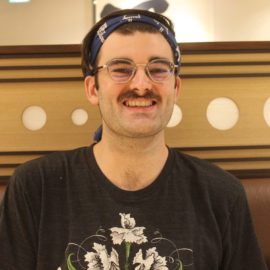
– Discussions with people in the Japanese media localization industry –
Cassiel
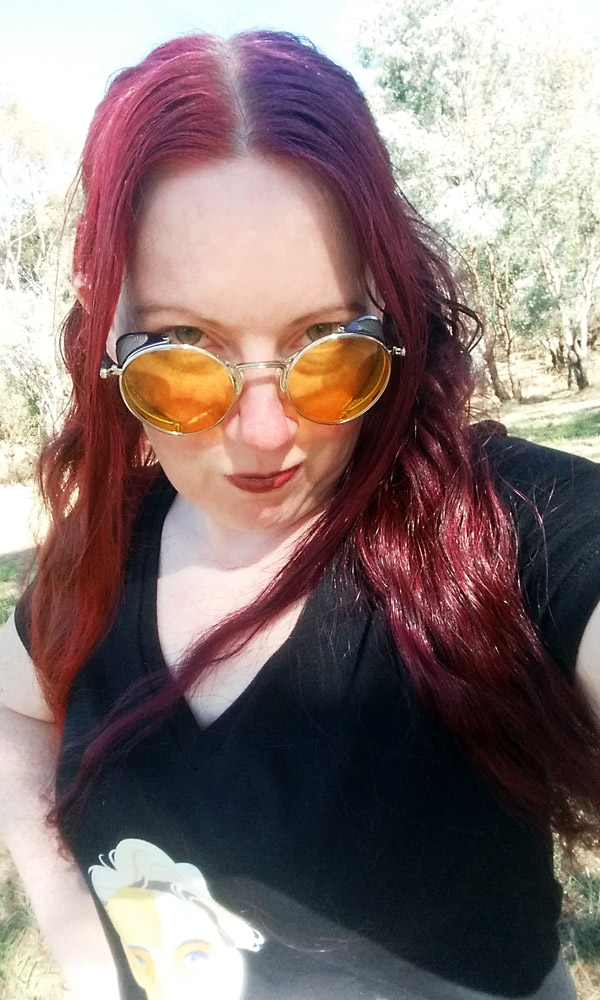 Why don’t you tell us about yourself?
Why don’t you tell us about yourself?
My name’s Cassiel, and I’m a Japanese-to-English translator, localizer and transcreator (more on that later). I have 11 years of professional translation experience. I currently work primarily in video games and manga.
My specialty is otome games; for those who aren’t familiar with them, they are romance games written for women.
I love language, I love creative writing, and I love love itself! So working in these sorts of translation fields really allows me to indulge multiple passions at once!
I live in a semi-rural part of Australia with my platonic life partner of 23 years, I have two dogs, a cat, and several fish. I am also chronically ill, so I spend a lot of time at home, working, chilling with my little family, and relaxing.
How did you get into translation?
It all started because I fell in love with anime and manga back in my late teens. That was a long, long time ago. At the time translated anime and manga were both very rare and very expensive.
I (very naively) said to myself “it would be cheaper to learn the language myself and buy it all in Japanese!” and started studying Japanese.
I soon realized the folly of my original idea *laugh* but in the meantime I fell completely in love with the language.
Then I went on to study it at University simply because I was enjoying it so much. I had no idea of what I’d do with myself when I graduated. But in my third year I took a translation course. That was when I properly realised how much fun translating is, and how viable a career it could be.
After graduating I lucked straight into a job in Japan. I worked in-house for a toy and hobby company, doing all their translation and interpreting work for them.
That was a lot of fun, and I learned so much about translating (and about how much I suck at interpreting!). But I have several disabilities that make it difficult for me to work full-time in an office, especially in a country like Japan that loves overtime so much.
After I returned to Australia, I did some generalised freelance translation work for a while; trying to keep my skills up. And then by pure luck, a friend I’d known for years put me in touch with a games company in Japan.
They were looking to start releasing their otome games in English…
So, is that what led you to your specialization?
Yes! I’ve been an avid player of video games since I was a kid. And romance has always been my preferred genre for my own creative writing, so it was like a dream come true!
And in return they really liked the way I translated their romance.
I started freelancing for them, and now, many years later, they are still my main client.
They give me enough work to keep me working full-time most months. Most of my games translation career has been working on one or another of their otome games. At this point I’ve been with the company longer than anyone currently working in their in-house English language department! (I’m sorry, though, I can’t name them because I signed an NDA!)
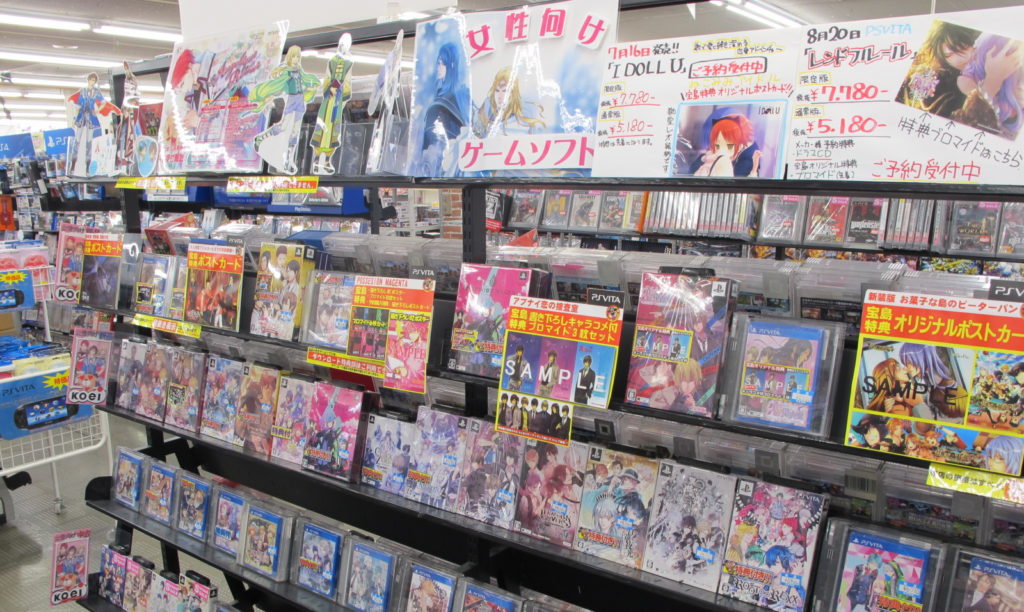
What’s it like working with otome games?
This is where the transcreation comes in…
The company has always taken player feedback on board. They realised very early on that their English-speaking players have different wants and needs to their Japanese-speaking players.
In order to answers those, they started encouraging their translators to make tweaks and changes throughout the games to make them more appealing to an English-speaking audience. This includes toning down or removing sexism, sexual harassment, and rudeness. It also includes making the player character come across as stronger, sassier, and more equal to the men she’s romancing.
Sometimes this is just modifying a line of dialogue, or tweaking a bit of narration. But other times, especially when they’re getting intimate, this can mean entirely rewriting a scene to make it work right in English.
This is the transcreation: modifying the content so that it evokes the same desired response in the new audience as it did in the original; even if it means the content itself is quite different.
It can be hard at times, as it involves more imagination and creativity. Especially when heavily modifying the text while working within the constraints of what’s already on the screen, and what happened before and after that scene. But it’s very satisfying and I enjoy it a lot.
I have done some other games work in the last few years that wasn’t for otome games. But I fully admit that the otome games are my favourites. I really enjoy working with romantic stories, and figuring out the best ways to evoke those delicious feelings of excitement and love and passion. And based on the feedback from the players, they enjoy my work, too, which makes me very happy!
I’ve also more recently started translating manga. I’m currently working on a BL (boy’s love) series, so really, I’m just doing romance in every type of media I can! *laugh* But I’m happy that way. I think I’ll be a romantic at heart until the day I die.
What did you wish you knew before becoming an established translator?
I wish people had been more open about talking about what are the appropriate sort of rates to charge as a freelancer. Especially in the industries I now work in.
So many online discussions are incredibly coy about rates (or certainly were when I was trying to figure it out). And it meant as a newcomer to the industry I had no idea what to charge.
I actually was lucky (?) and started out accidentally overcharging. XD
I think it helped that I already had several years of professional experience to back me up, and that gave me (and my clients) confidence in my abilities.
But I know a lot of people who come into the industry who end up undercharging. This can be because they don’t know what the standard rates are and/or don’t have enough faith in their abilities. Or because they get picked up by companies offering very low, exploitative rates, and don’t know that they’re being taken advantage of because the veterans in their field aren’t talking about it enough.
I’ve honestly been really, really lucky for most of my career. So I don’t have many regrets about things I’ve done. But I know a lot of people who’ve had a lot more struggles than I have.
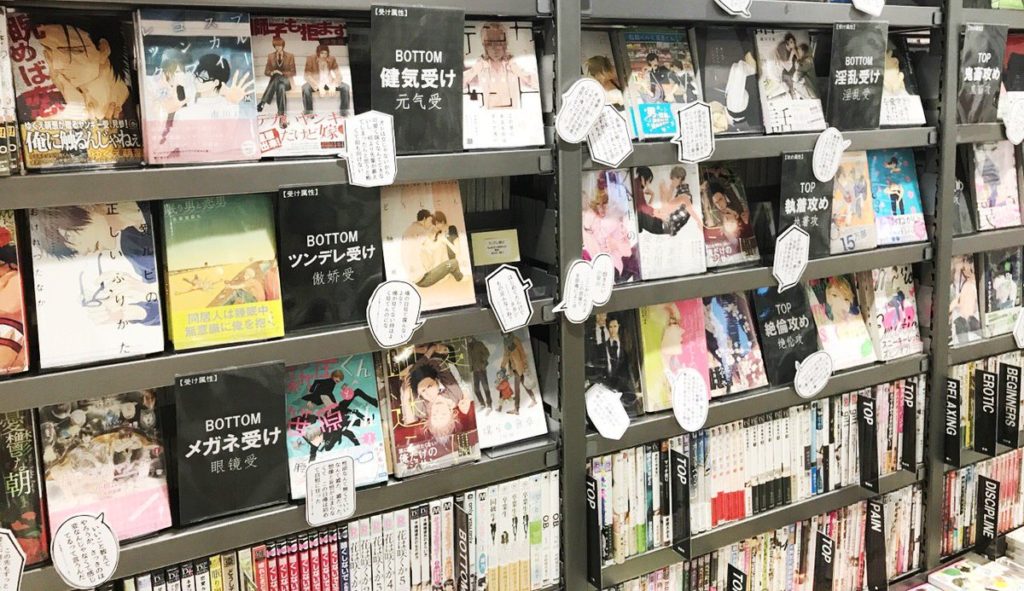
What was the biggest challenge establishing yourself as a translator?
One of the biggest challenges for me personally has been learning how to network.
I’m quite introverted, and I need a lot of downtime to recover from any form of socialising. I’m also autistic and I’ve always struggled in social situations; in figuring out what to say and do and when it’s appropriate to approach people and so on. I apparently fake it pretty well, but it’s still always very difficult for me, and there’s a lot of anxiety involved. (And anxiety is exhausting!)
I’m very grateful for the internet, which has made networking a lot easier for me. It’s much more comfortable working in a text-based environment. I’m also grateful for the friends I’ve made who are elite networkers, and allow me to sort of ride along on their coattails!
I’d always found the concept of networking so hard to fathom, and couldn’t really understand how it worked or why it helped. It’s been a relief to find that it really is just another form of creating and maintaining friendships. And it’s been a surprise to find out just how useful it can be in connecting you to new job opportunities that are really suited to you.
These days I really encourage newcomers to the industry to reach out and start networking pretty early on. And if they’re introverted or anxious or have other barriers to networking, I like to help reassure them and try to give them coping techniques or skills to overcome that. There are lots of ways to network, and you can find the way that works for you!
The other thing, to be honest, is my imposter syndrome.
You’d think that after 11 years I could get past something like that, but nope!
I’m still waiting for someone to go “a-ha!” and figure out that I actually suck. (Even though logically, I know that I don’t!)
My JerkBrain will always find a way to denigrate a success; for example, in 2016 I won the inaugural LocJam Japan (in the pro translator category) and my brain immediately went “I guess there mustn’t have been very many entries if they picked you!” Thanks, brain.
(Because of that win, though, my partner now turns around and yells “award-winning translator!” every time I denigrate myself, which helps a bit.)
But I don’t hate my imposter syndrome. Because in a way it pushes me to keep striving to be better. I just have to be careful not to let it overwhelm me, and recognise when it’s talking.
And also, another good thing about it is that when I hear newcomers struggling with their imposter syndrome, I can reach out to them and connect with them about it. And I think it helps them to know that it really is imposter syndrome, and not just them being bad at what they do.
What have you been most proud of?
Hmm, that’s a tough one. I think I have two that really stand out in my mind, though.
The first was a character route I translated for one of the otome games I work on; the character was quite problematic in the Japanese. Although he was meant to be the ‘bad boy’ type, he came across as too much of an arsehole to actually be really attractive to the average English-speaking player.
For this particular character I took full advantage of my transcreation perk. I did a lot of careful tweaking to make their relationship seem less like a bully and his victim, and more like two sassy equals who snarked and teased back and forth, igniting each other’s passion.
When his route was released in English, it was very well received. He’s gone on to be far more popular with the English-speaking audience. Including winning some popularity contests he never even came close to winning with the Japanese-speaking audience! That’s something that makes me really proud because I know my tweaks really made a huge difference there.
The other is pretty similar, actually! There was another character route that I translated, and did a fair amount of tweaking in. The company later told me that the feedback from the fans had been very positive. Particularly in regards to his approach to consent and reading body language during the romantic moments.
Again, this made me very happy and proud because all the consent parts were tweaks I’d made; both because I knew it was something the audience would like, and because I felt it really fit the personality he already had, so it never felt forced.
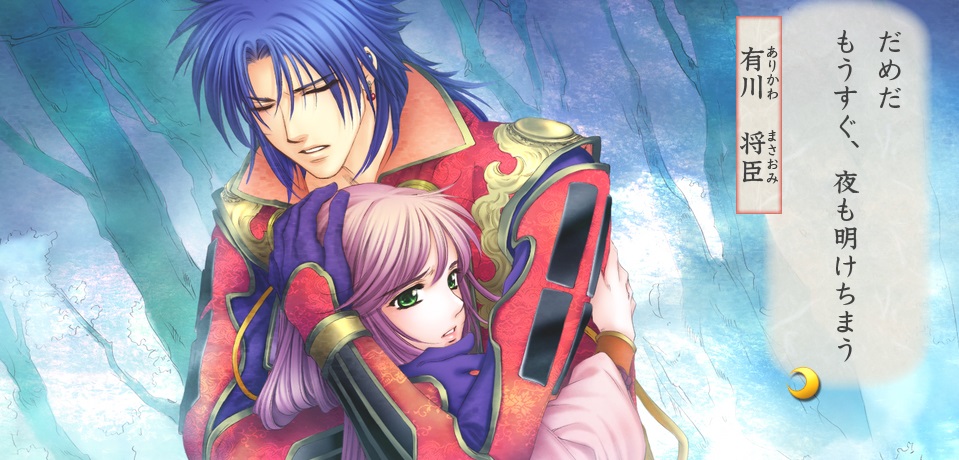
Is there something you worked hard on that you think no one noticed?
This one’s actually an ongoing thing for me, to be honest.
Several of the games I work on are period pieces, set in the 1700s and 1800s. The original writers tend to be pretty laidback about historical accuracy. My autism makes it difficult for me to be that laidback, though, and the company has always encouraged me to fix any inaccuracies if I see them.
As a result, most of my work-related Google searches are “did X exist in 1780” or similar!
I now know a surprising amount of detail about what did or didn’t exist in those time periods. I can sometimes spend hours trying to figure out the exact details of something that only appears as a throwaway mention in one line. So I doubt anyone will ever appreciate just how much work goes into that! But I can’t help myself, and I find it quite satisfying.
And just to let you know about my biggest pet peeve, for any of you who would like to write historical romances: inner spring mattresses weren’t even invented until 1871, and didn’t come into common use until the 1930s or so. So even if your characters are spending a lot of time in bed together doing something other than sleeping, there will be no squeaking bed springs! ;)
If you could do anything, what would you love to do or try out?
Ever since I first played Kenka Bancho Otome, I’ve desperately wanted to translate it into English. (I probably don’t have the connections to land a job like that, but hey, Spike Chunsoft, if you’re reading this: pick me, pick me!)
Not only is the story really fun and well-written, and the characters delightfully engaging; but there’s this awesome mini-game about trash-talking your opponents before you fight them. A phrase will come up on the screen and then you try and recreate it through quick button presses. If you get it wrong you come up with some hilarious results that can confuse your opponent, or even make your fight harder! I would love to translate it and make it just as fun and hilarious in English. I love that sort of word play!
I’d also be interested in translating BL romance games, if the opportunity ever crossed my path. BL/yaoi was what really got me seriously hooked on anime and manga to begin with. And I’d like to give more back to the genre to thank it for all it’s done for me. (I’m not sure if that’s a feeling that makes sense to anyone else, but it does to me!)
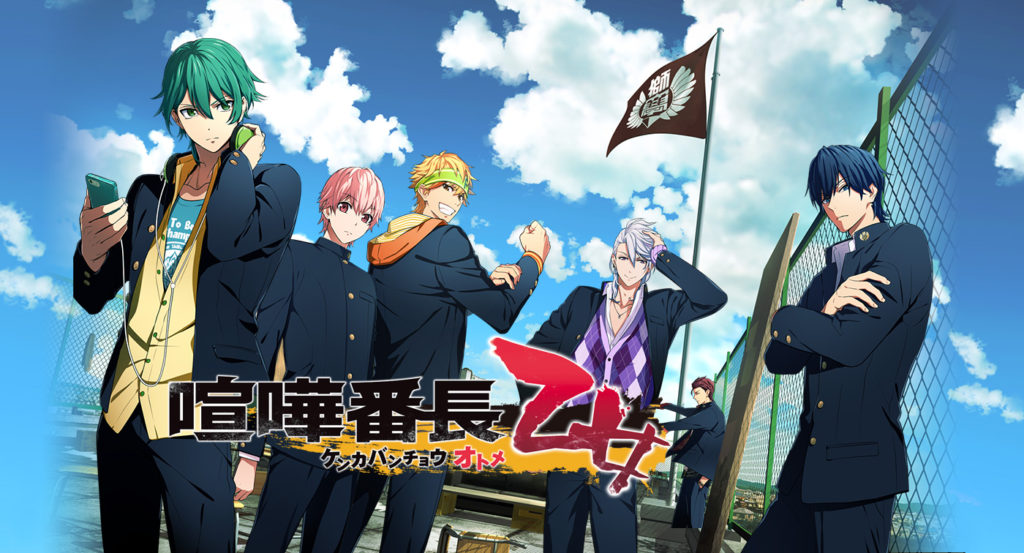
What do you think people don’t know about in translation that you wish would?
I think many people don’t fully understand that for most translators, this is a job like everything else.
Even when we love what we do, it still has to pay the bills, so we have to do our translations within the framework we’re given. And this can be problematic when it comes to translating games or manga or anime, which are creative works that people get really invested in.
Most translators want to create the best translation they can, but they are often hampered by tight deadlines. This means they have to rush things. Or they might get poor pay, which requires them to take on lots of jobs just to pay their bills. (This means they can’t give their full focus to any individual job!) Or it might be a lack of background information from the client that stops them from being able to fully understand the project.
Bigger projects are often split between multiple translators so that they can be released in a reasonable timeframe. But those translators are not always given the opportunity to connect with each other and make sure they’re all on the same page.
Clients don’t always understand what translators need when working. And they don’t always respond to questions or requests for context or clarification.
A lot of things can go wrong when translating…!
This sometimes means the final product that’s delivered to fans can be disappointing, and I totally get why that can upset them. But I often see them pointing the finger of blame directly at the translators, because they are the most visible target.
People often don’t understand all the barriers that get in the way of a good translation. Or all the other people that a translation goes through before it gets put into the final product. So this is something I try to talk about whenever I can, in the hopes of raising awareness.
If you’re a fan of any sort of translated work and you want to see better quality translations; then please consider reaching out to the companies involved! Ask them to pay their translators better; give their translators more realistic deadlines; and make sure their translators have access to the information they need to understand the project they’re working on.
We work really hard, and we often love the projects just as much as you do. But many of us are underpaid and under a lot of pressure.
Is there anyone or anything you draw inspiration from?
My fellow translator friends, and my friends who work in various other areas of game development.
Since I started working in game translation, I’ve forged some amazing, lasting friendships with some really exceptional people. And I’m not only honoured to call them friends, but honoured that they call me friend in return.
Their passion for what they do and their ongoing determination to deliver the best games (or other forms of media) they can to their audience inspires me on a daily basis.
Sometimes when I’m struggling or overwhelmed or overworked, all it takes is a kind word or a virtual hug or a silly meme from a friend who understands, and everything is okay again. And I value that so much. (And in return, I like to be there for them whenever I can, too!)
Find Cassiel on the Interwebs!
Twitter (I’m shy, I don’t post much, sorry!): @sparkleponycass
Email: cassiel[at]crysania.com
I tend to be a fairly private person online, but you are still welcome to reach out. :)

What is Interviews With Localizers?

